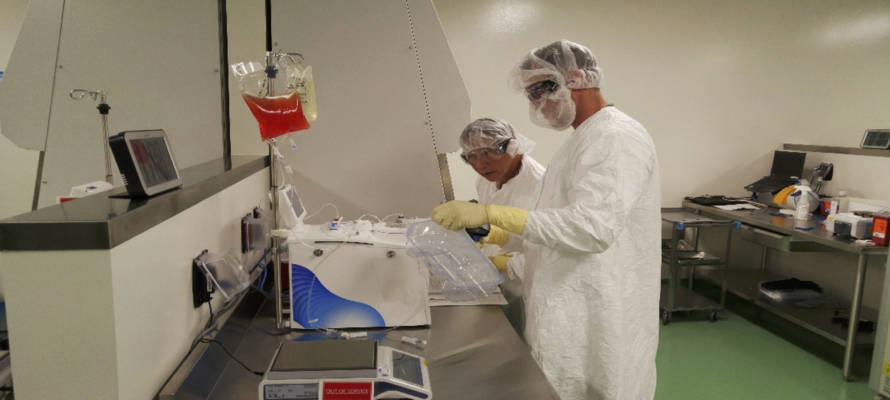Hadassah Medical Center reports that trials of a groundbreaking CAR-T therapy showed a nearly 90% response rate in 74 patients.
By Abigail Klein Leichman, ISRAEL21c
Close to 90 percent of 74 multiple myeloma cancer patients responded well to an advanced CAR-T cell therapy developed by Prof. Polina Stepensky, director of the Bone Marrow Transplantation Department at Hadassah University Medical Center in Jerusalem.
More than half the trial participants went into complete remission, and none experienced more than minimal and mild side effects.
“These are dramatic results and represent enormous hope for patients with a disease that, to date, was incurable,” said Stepensky.
Multiple myeloma is the second most common hematological disease, accounting for 1 percent of all cancers and 10 percent of blood cancers.
The experimental CAR-T cell therapy is based on genetic engineering technology developed at Hadassah in collaboration with Prof. Cyrille Cohen, head of the Immunology and Immunotherapy Laboratory at Bar-Ilan University.
“The American company IMMX Bio has acquired a patent license, and we are about to open a clinical trial in the US,” Stepensky said. “The plan is to reach FDA approval of the drug within a year.”
She said that more than 200 patients from Israel and around the world are on a waiting list for trials of the treatment.
“Due to the complexity of production, and the complexity of the treatment itself, only one patient per week enters treatment, which is still conducted as part of a trial.”
The process begins with isolating tumor-fighting T cells from the patient’s immune system via an apheresis device. The extracted T cells are enhanced with a lab-designed virus and a genetic segment that encodes a receptor against the cancer cells. The engineered cells are injected back into the patient to destroy tumors.
The groundbreaking idea of using immune cells to fight cancer cells was innovated several decades ago, also in Israel, in the lab of Prof. Zelig Eshhar at the Weizmann Institute of Science.
Currently, CAR-T therapy is severely limited in availability and is prohibitively expensive at more than $400,000 per treatment.
Stepensky said the new method is “much more sophisticated and advanced” as well as more affordable and accessible.
